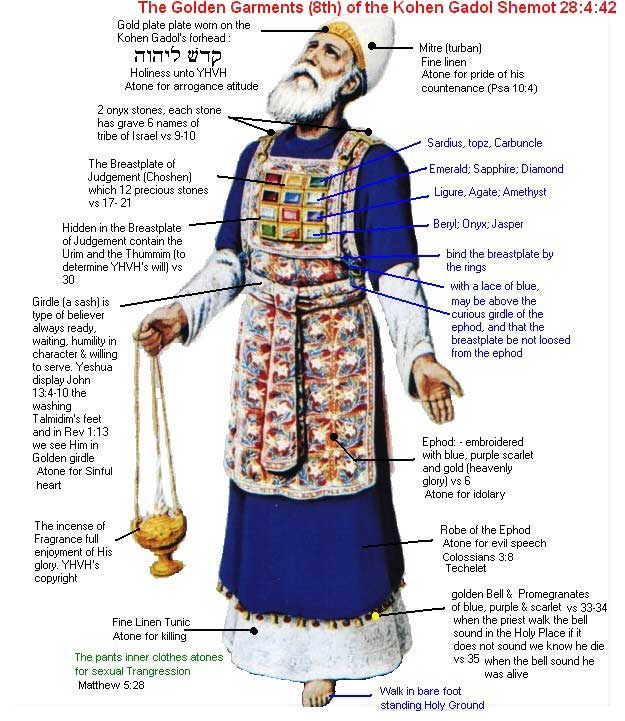Question: "In Acts 15, while not imposing circumcision or kosher dietary laws on gentile converts, the Apostles nevertheless commanded then to abstain from the blood of animals (Acts 15:29). I have heard Orthodox Christians say that this was something that we no longer had to observe. Is that true?"
The Council of Jerusalem came about as a result of
St. Peter's vision of the unclean food, the gentile Pentecost which followed that vision, and then
the rapid spread of the Gospel among the gentiles in Antioch and in other places. The question was whether these converts had to become Jews, and fulfill the Old Testament laws and customs fully, or not. The decision the Apostles made was related in the following Epistle, which is found in
Acts 15:23-29:
"
The apostles, the elders, and the brethren,
To the brethren who are of the Gentiles in Antioch, Syria, and Cilicia:
Greetings.
Since we have heard that some who went out from us have troubled you with words, unsettling your souls, saying, “You must be circumcised and keep the law” —to whom we gave no such commandment— it seemed good to us, being assembled with one accord, to send chosen men to you with our beloved Barnabas and Paul, men who have risked their lives for the name of our Lord Jesus Christ. We have therefore sent Judas and Silas, who will also report the same things by word of mouth. For it seemed good to the Holy Spirit, and to us, to lay upon you no greater burden than these necessary things: that you abstain from things offered to idols, from blood, from things strangled, and from sexual immorality. If you keep yourselves from these, you will do well.
Farewell."
Not only is there nothing in Scripture that would suggest that "these necessary things" have been set aside, but in fact there are several Ecumenical Canons that reaffirm them.
To begin with, there is Canon 63 of the Holy Apostles, which were confirmed specifically at the 4th, 6th, and 7th Ecumenical Councils:
"
If any Bishop, or Presbyter, or Deacon, or anyone else on the sacerdotal list at all, eat meat in the blood of its soul, or that has been killed by a wild beast, or that has died a natural death, let him be deposed. For the Law has forbidden this. But if any layman do the same, let him be excommunicated."
St. Nicodemus of the Holy Mountain provides the following commentary:
"Because of the fact that even God in giving the law about what may be eaten to Noah said to him: “Every moving thing that liveth shall be food for you; even like the green herb have I given you all things. But meat in the blood of its soul shall ye not eat” (Gen. 9:3-4), in the present Canon the divine Apostles ordain that any bishop, or presbyter, or deacon, or anyone else on the list of priests and clergymen, shall be deposed from office if be eat meat with blood, which is the animal’s life, meaning strangled, according to Chrysostom; or if he should eat meat killed by a wild beast—that is to say, an animal caught and killed by a wolf, say, or by a bear, or by any other such beast, or by a vulture; or if he should eat meat that has died a natural death—that is to say, a carcass that has died of itself: any clergyman, in other words, that is guilty of eating such flesh shall be deposed from office, since the Law too prohibits the eating of it,2 including both the law given to Noah, as we have said, and that given to Moses in ch. 17 of Leviticus. If, however, the one who ate it should be a layman, he shall be excommunicated.
Moreover, in the new Law of the Gospel too such things are not allowed to be eaten. For these same Apostles held a meeting and wrote to the heathen inhabitants of Antioch and of Syria and of Cilicia the following words: “It has seemed right to the Holy Spirit and to us not to impose any further burden upon you, except what is necessary in these matters, to wit: to abstain from eating food offered to idols, and blood, and fornication” (Acts 15:28-29). The reason why animals killed by wild beasts or preyed upon by vultures, and those which have died a natural death or which have been strangled, are forbidden is that not all their blood has been removed, but, on the contrary, most of it remains in them, being scattered through out the veinlets of all the meat,1 from which veinlets there is no way for it to escape. Wherefore those who eat them are eating meat in the blood of its soul. Accordingly, c. LXVII of the 6th deposes any clergyman that eats blood in any manner or by any device whatever, while, on the other hand, it excommunicates a layman for doing so. Canon II of Gangra also forbids the eating of blood and strangled flesh and food offered to idols. There were various reasons why God commanded men not to eat blood. Theodoret says that blood must not be eaten on account of the fact that it is the animal’s soul. Hence when anyone eats meat without blood it is the same as though he had been eating soulless vegetable. But if he eats it with the blood it is evident that he is eating an animal’s soul. Chrysostom says that the reason for not eating the blood is that it was consecrated to be offered only to God. Or it may be that God wanted to keep men from shedding human blood and for this reason commands that they should not eat even the blood of animals, lest as a result they gradually fall into the custom of killing human beings. Adelus says that the reason why God commanded men to eat meat that is free from blood was to teach them by this not to be inhuman and bloodthirsty like the wild beasts, which eat all the animals they kill in the raw state as torn to pieces with the blood still in them, but, on the contrary, to be different from wild beasts, and as rational human beings to sacrifice the animals first by pouring out their blood, and thus to cook their meat in various ways and then eat it. For it is enough for them to become so cruel and compassionless as to slaughter the animals, but certainly they ought not to be so excessively compassionless as to eat them with their blood. Nevertheless, the main reason, and the one nearest the truth of the matter why God commanded men not to eat blood is the following. The blood has the form, or type, of man’s immaterial and uneatable and immortal soul for two reasons: first, because just as the blood of animals, both as something warmer and as something more spirituous, and as something more mobile than other liquids, is their soul but an irrational and material soul, so too is man’s soul, though immaterial and rational, and albeit not blood, as something bodyless and immaterial, yet it uses human blood as a vehicle and instrument or organ of its activities for its own reasons or needs; second, because the blood was shed for the purpose of appeasing the rational souls of human beings, as God says in Leviticus (17:11), “the soul of all flesh is the blood thereof; and I have given it unto you upon my sacrificial altar for you to make an atonement for your souls: for it is the blood thereof that maketh an atonement for the soul.” So whoever eats blood is eating a rational soul, whereof that blood serves as a form or type. But if he does eat it, it is plain that it is something corporeal and material, and consequently renders the soul mortal. “For if you eat this,” says Theodoret in interpreting the above saying, “you are eating a soul. For this occupies the same position as that of a rational soul, because the eating of it is called murder.” So that the Latins, and all other human beings that eat strangled meat, or meat killed by a wild beast, or meat that has died a natural death, and generally speaking meat with the blood in it, or what is the worst of all the blood alone, are sinning against a great dogma. For by so doing they are dogmatizing the rational soul to be both material and affectible like the bodies of man. For whatever occurs in the form, or type, occurs also in that which is typified, or bears reference thereto. That is the same as saying that whatever consequences result from the eating of blood will affect also the rational soul; and for this reason it was that God threatened those who eat blood with death: “Whosoever eateth it shall be cut off” (Lev. 17:14). Possibly, too, in a more mystical sense the eating of blood was prohibited in order to make it plain that just as blood should not be eaten indifferently and similarly to meat, so too the all-immaculate blood of the God-man Jesus ought not to be eaten indifferently and similarly to the other foods, but, on the contrary, with special and surpassing reverence, and with inhesitant faith. As for the fact that the blood of sacrifices had the type, or form, of the blood of Christ, that is one to which the divine Apostle is a witness, since he confirms it in all his Epistle to the Hebrews, and along with the Apostle the choir of divine Fathers do too. But as to that which Origen says in his discourse against Celsus, to the effect that we must not eat blood, in order to avoid being nourished with the food of demons (for there were some men who asserted that demons were nourished by the exhalations of blood); and also as to that which Clement of Alexandria, Origen’s teacher, asserted, to the effect that human beings ought not to eat blood, because their own flesh is irritated and stimulated with the blood—all these ideas, I say, have been placed last in order on the ground that they do not possess so much force and power."
And Canon 67 of the
Quinisext Council states:
"Divine Scripture has commanded us to “abstain from blood, and strangled flesh, and fornication” (Gen. 9:3-4; Lev. ch. 17 and 18:13; Acts 15: 28-29). We therefore suitably penance those who on account of their dainty stomach eat the blood of any animal after they have rendered it eatable by some art. If, therefore, anyone from now on should attempt to eat the blood of any animal, in any way whatsoever, if he be a clergyman, let him be deposed from office; but if he be a layman let him be excommunicated."
This is not referring to the juice that may come from a piece of meat when it is cooked, but rather to the blood which is normally drained from an animal at the time it is butchered. And so such foods as "
Blood Sausage," and "
Black pudding," and some wines that have blood added to them should not be consumed by an Orthodox Christian.





